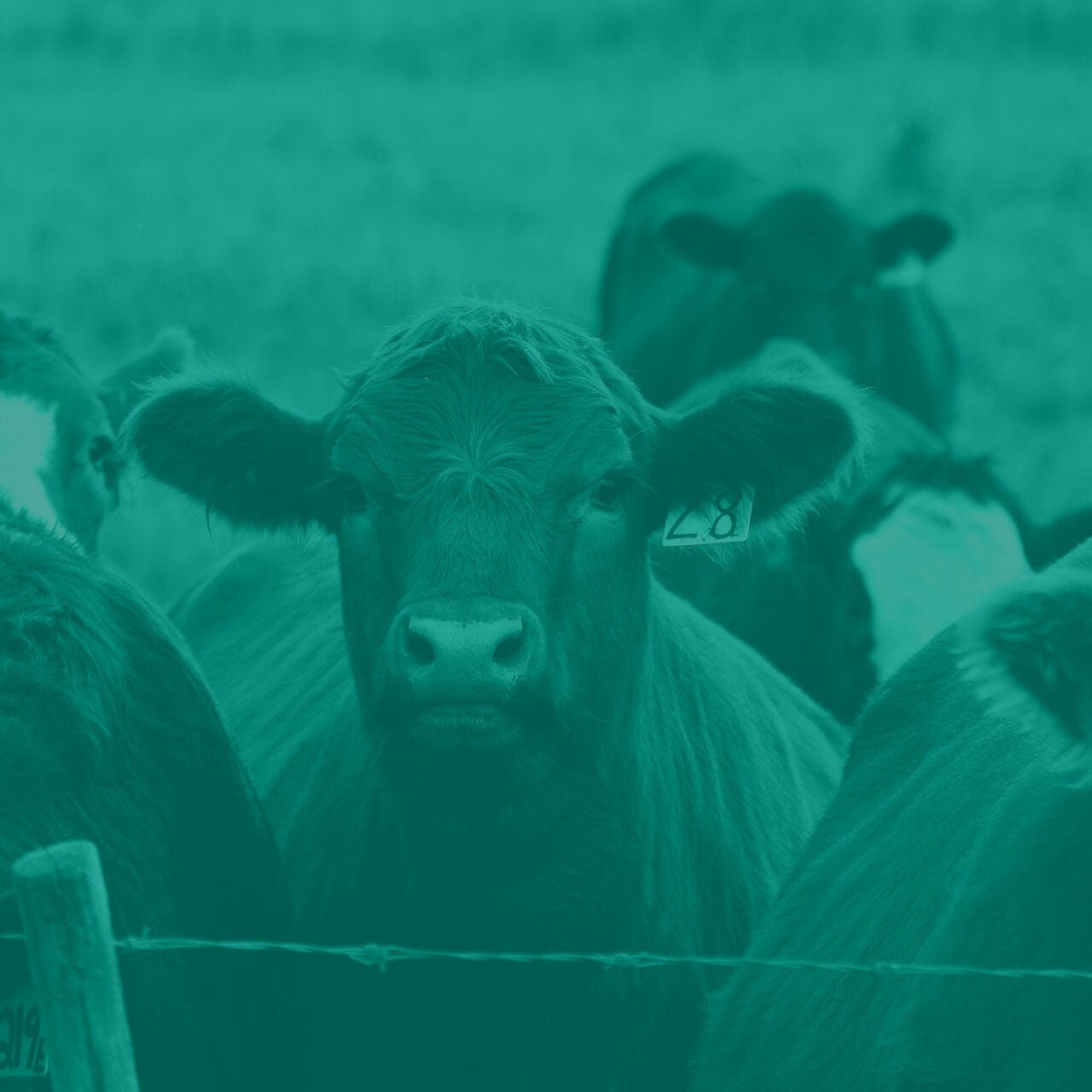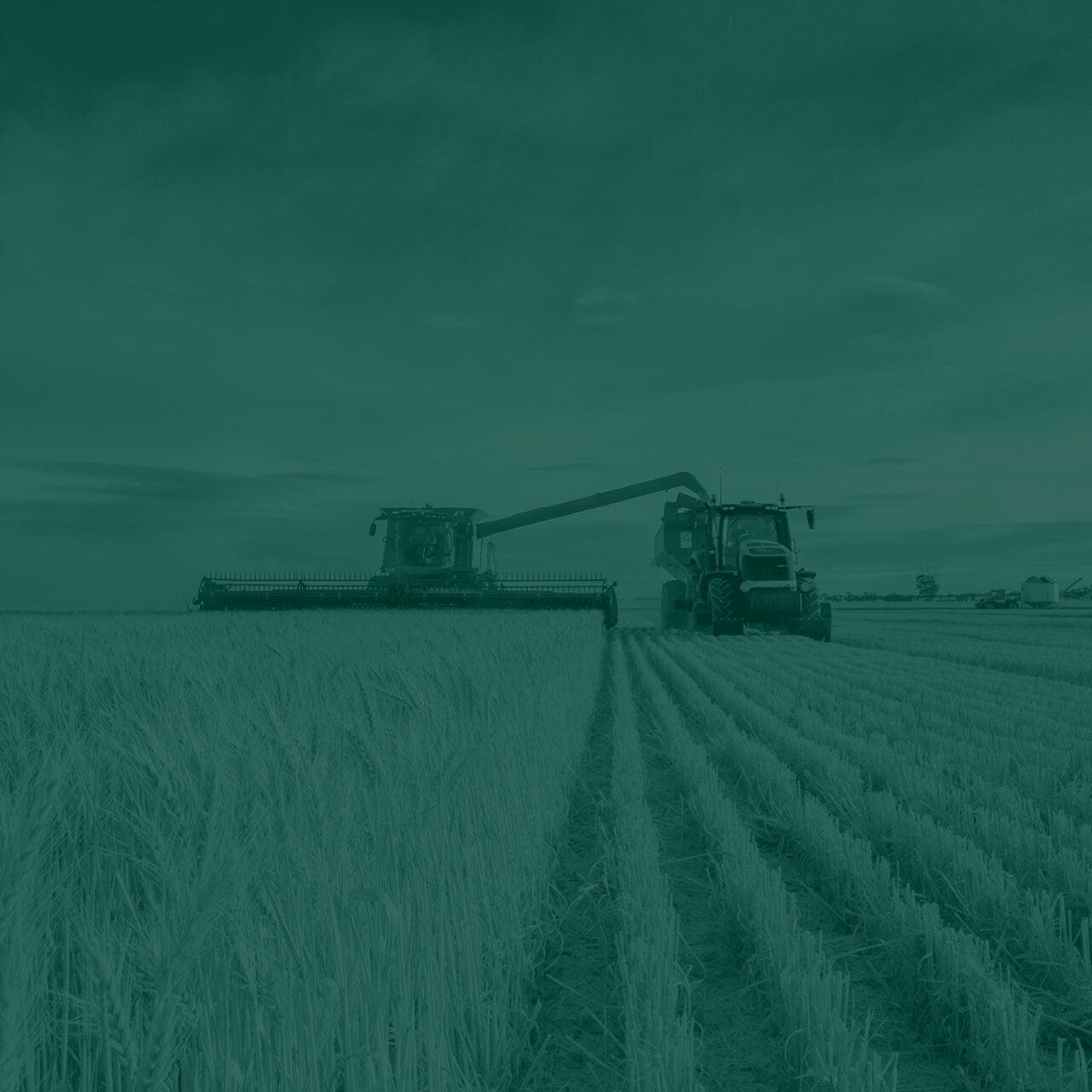
Tornado preparedness guide: How to minimize and protect yourself from tornado-related damage
Peak tornado season in Canada typically occurs between June and August, but a twister can happen anytime between the spring and fall.
Tornadoes range in size and scale, often travelling at speeds upwards of 100 km/h — even reaching speeds of up to 400 km/h in severe cases. This can lead to extensive property damage in a short period of time.
Tornadoes have been recorded in every province and territory in Canada. While they are most prevalent across the Prairies, southern Ontario and southern Quebec, parts of interior British Columbia and western New Brunswick are also at risk. It is important to remember that they can touch down anywhere.
Acera Insurance does more than just offer coverage to protect against a variety of threats — we also educate and empower our clients to minimize risk.
Our tornado preparedness guide provides resources and information that can help you proactively minimize damage that a tornado may cause to your home, business or farm. We also explain which insurance policies offer protection against tornado-related losses, as well as outline how to file an insurance claim.
Note: As significant rainfall and large hailstones are common before and during a tornado, we recommend you also review our flood preparedness guide and hail preparedness guide.
Contents
- Protect your home from tornadoes
- Tornado preparedness: Understanding what property and auto insurance covers
- Protect your business from tornadoes
- Tornado preparedness: Understanding what business insurance covers
- Protect your farm from tornadoes
- Tornado preparedness: Understanding what farm insurance covers
- Stay safe during a tornado
- Tornado damage: How to file an insurance claim
- Tornado preparedness: Answers to your insurance questions
- Additional severe weather resources
Tornado information for individuals
Protect your home from tornadoes
When it comes to tornadoes, reinforcing the strength of your home may help minimize damage that high winds and flying debris can cause.
- Consider installing storm shutters for your windows, skylights and doors. Choose storm shutters that are impact resistant.
- When the time comes to replace your roof, consider installing a waterproof underlayment and using impact-resistant roof materials.
- Secure or shelter your outdoor belongings (i.e., patio furniture, barbecues, garbage bins).
- Use furniture anchors to securely fasten large furniture (i.e., dressers, bookcases) to the wall.
- If possible, park your vehicle under cover (i.e., garage, carport).
We recommend creating and maintaining a current home inventory list, which you update at least once a year. This can help the claims process go more smoothly if your home is damaged by a tornado.
Here are four tips to help you get started on your home inventory list:
- Go through your home, room by room, and document your possessions and belongings. Your home inventory should ideally include the following for each item: a detailed description, serial number, purchase date and estimated value. We also recommend taking photographs of your possessions.
- Safely store your receipts.
- Consider creating 360-degree-view videos of the inside of your home, as well as outside. This can help keep track of your items and upgrades to your property.
- Keep your home inventory list in a safe spot, with at least one copy offsite. Back up any digital copies.

Tornado preparedness: Understanding what property and auto insurance cover

Tornadoes can throw debris and materials through the air at high speeds, and are also often accompanied by very large hailstones and significant rainfall, all of which can damage your property.
Homeowner insurance, condo insurance and tenant insurance policies provide coverage for tornado-related damage caused by wind, including to your:
- home.
- other structures (i.e., sheds, detached garages, fences).
- personal belongings (i.e., furniture, clothing, electronics).
Homeowner insurance also typically covers expenses to remove any debris that has caused damage to your insured property and structures. For example, during a tornado, the extreme wind causes a tree to fall on your home; the cost to remove the tree would be covered by your homeowner policy.
In the event of tornado-related wind damage, the coverage provided through homeowner insurance, condo insurance and tenant insurance policies extend beyond property damage.
Other coverages available to you may include:
- Additional living expenses, which can help cover increased living costs if you must temporarily relocate while your home is being repaired following tornado-related damage. You may also be reimbursed if placed under mandatory evacuation order. Keep all your receipts for your expenses while displaced (i.e., hotel, food, transportation), as your insurer will use these to calculate your extra costs, compared to your normal living expenses.
- Food spoilage, which can help you replace the contents of your fridge and freezer if a tornado causes a power outage.
Your property insurance policy — be it homeowner insurance, condo insurance or tenant insurance —includes different coverage limits.
- Your property coverage limit should reflect the amount you’d need to repair or rebuild your home and additional structures. (Note: Structural repairs or reconstruction are not the responsibility of condo owners or renters, but of condo corporations and landlords).
- Your contents limit should reflect the amount you’d need to repair or replace damaged personal belongings, as well as cover temporary additional living expenses.
- Depending on your insurer, you may also have a food spoilage limit, which should reflect the amount you’d need to replace the contents of your fridge, freezer and pantry.
Remember, in the event of a total loss, your coverage limits are the maximum amount you’ll receive from your insurer, minus depreciation and deductible.
Speak with your Acera Insurance advisor if you have any questions about your coverage limits, especially if your home is currently being upgraded or has recently been renovated, or if you have purchased any high-value belongings.
You would have selected a deductible when purchasing your property insurance policy. This is the amount you have agreed to cover when making an insurance claim.
For example, if your home sustains $1,500 in tornado-related wind damage and your homeowner insurance policy has a deductible of $500, the maximum amount you’ll receive from the insurer is $1,000.
Contact your Acera Insurance advisor if you have any questions about the deductible for your homeowner, condo or tenant policy.
Your vehicle may be protected from tornado-related wind damage if you added comprehensive coverage to your auto insurance policy. A deductible will be applied to any tornado-related wind auto insurance claims.
Find more information about hail insurance coverage for vehicles here.
Please contact a member of our team if you have any questions about the protection your home, condo, tenant or auto insurance policy can offer in the event of tornado-related wind damage.
Tornado information for businesses
Protect your business from tornadoes
Tornadoes can damage your business property, put your employees at risk and disrupt your operations. Prepare your business with these tips.
- Regularly inspect your roof and repair or replace any worn materials or weak areas.
- Install impact-resistant windows, including skylights.
- Ensure outdoor equipment is securely anchored or fastened.
- Park company vehicles undercover, if possible.
- Store valuables and key systems in a safe, secure and central location, ideally far away from windows, as well as exterior doors and walls.
Employee safety should always be the highest priority during any disaster.
The first step is to proactively determine a safe space where employees can seek shelter in the event of a tornado. This space should be free of windows and exterior doors and should be more towards the centre of your building, away from any exterior walls.
Find more tips on how to stay safe during a tornado here.
Regularly educate your employees on your disaster emergency plan.
Even if your business isn’t directly damaged by a tornado, a twister can indirectly impact your operations.
The best offence is a good defence, and a business continuity plan can help support your organization in weathering a storm — literally and figuratively.
Crafting a comprehensive business continuity plan entails understanding your insurance policies, maintaining access to the property and developing effective communication strategies.
Your business continuity plan should provide clear direction for how to:
- Communicate with employees.
- Set employees up to work in another location or remotely, if needed.
- Manage supply chain logistics and potential shortages.
- Carry out essential services and functions of your operations.
- Access key data, systems and equipment.

Tornado preparedness: Understanding what business insurance covers

Commercial property insurance typically provides coverage for tornado-related wind damage, as well as hail damage.
Your commercial property insurance policy can provide coverage for your business:
- property (i.e., building, exterior signage, fencing, tools and equipment)
- contents (i.e., furniture, fixtures, computers)
- assets (i.e., inventory, equipment, company-owned vehicles)
As heavy rainfall often accompanies tornadoes, it’s important to understand that commercial property insurance does not provide coverage for flood-related water damage. To be covered for flood-related damage that may occur in the event of a tornado, you will need to have additional coverage, such as sewer backup and overland water endorsements. Learn more about these coverages here.
- Business interruption insurance can help your company recover lost revenue if you sustain insured losses — such as property damage — or if you’re forced to close during a mandatory evacuation order.
- Commercial auto or fleet insurance can help you repair or replace company vehicles damaged by a tornado (or hail) if you included comprehensive coverage as part of your policy.
If you have any questions regarding tornadoes and insurance for your business, please contact your Acera Insurance risk advisor.
If your business property suffers tornado-related damage, your inventory list will be invaluable as you put together your claim for repair or replacement costs.
Assess your business inventory at least once a year. Keeping a current, detailed list of your stock, products, content and/or equipment can help streamline the claims process in the event of an insured tornado loss.
Document with photographs or 360-degree-view videos inside and outside your business premises and keep receipts and invoices for the items in your inventory.
We recommend that you keep one copy of your inventory list and photography offsite, and also provide a copy to your Acera Insurance risk advisor.
Tornado information for farms
Protect your farm from tornadoes
No matter if you run a hobby farm or a large-scale commercial operation, there are proactive steps you can take to minimize potential damage and losses that a tornado can cause.
When a tornado presents a direct risk, always prioritize your safety as well as those around you.
- Install impact-resistant windows and skylights on your house, as well as other structures around your farm, or consider installing storm shutters.
- Ensure outdoor equipment is securely anchored or fastened, where possible.
- Park vehicles undercover, where possible.
- Inspect the roof on your home and other buildings around your farm at least once a year; repair or replace any damaged or worn materials.
Also review these tips to minimize potential hail damage around your farm as large hailstones are common during tornadoes.
- Ensure all your animals have some sort of identification, such as ear tags or tattoos.
- If your personal safety is not at risk, move your animals inside a barn or another shelter, keeping them away from areas with windows if possible.
- Make sure your animals have plenty of access to food and water.
- Never tie up or restrain animals left outside.
- Remove loose objects from livestock areas as these can become fast-flying debris during a tornado.

Tornado preparedness: Understanding what farm insurance covers

A standalone crop insurance policy can help you recover lost income if a tornado damages your fields, either reducing your yield or causing a total crop loss.
Other policies that can provide coverage should your farm experience tornado-related losses include:
- Property insurance (i.e., homeowner insurance, commercial property insurance).
- Livestock insurance.
- Auto insurance (Note: You must have comprehensive coverage added to your auto policy to be covered for such losses).
- Business interruption insurance.
As large hailstones often accompany tornadoes, you can learn more about hail insurance for your farm here. Significant rainfall can also accompany tornadoes, causing flooding, which is not covered by standard property insurance policies. Consider adding endorsements to your property coverage (such as overland water, sewer backup and groundwater) to be protected from flood-related water damage. Learn more about flood preparedness here.
Stay safe during a tornado
Tornadoes can form quickly, meaning there could be little to no time for authorities to issue warnings. That’s why it’s important to recognize signs that a tornado may be imminent.
- Dark, often greenish skies.
- Clouds that are large and dark, often low-lying, rotating or funnel shaped.
- Large hailstones.
- A loud, continuous rumbling or whistling sound.
- Whirling dust or other debris in the air.
- In general, seek shelter when there is a tornado threat, staying away from windows and doors. The lowest floor available tends to provide the most protection and you want to put as many walls between you and the outside as possible.
- If you’re at home, go to your basement if you have one. If not, find a small space on the ground floor (i.e., bathroom, closet, hallway).
- If you’re in an office or apartment building, move to an inner hallway or room, ideally on the ground floor or basement, if possible. Do not use the elevator during a tornado.
- If you’re in a mobile home or trailer, immediately seek shelter elsewhere. If a secure, solid structure is not nearby, take shelter in a ditch or other low-lying area, and cover your head.
- If you are on a farm, seek shelter indoors as outlined above. Do not attempt to shelter your livestock if you are under a direct threat from a tornado. Remember, tornadoes can be deceiving; a twister can appear to be stationary when it is actually quickly moving towards you, and it can also change direction rapidly without warning.
- Never try to outrun a nearby tornado if you are driving. Seek shelter inside. If this is not possible, lay down in a ditch or other low-lying area, away from your vehicle, covering your head.
- If you are caught outdoors, lay down in a ditch or low-lying area, and cover your head for protection. Do not seek shelter under an overpass or bridge — you’ll be safer in a low-lying area. Be aware that severe rainfall can accompany tornadoes and lead to flooding, so review our additional tips on how to stay safe during floods here.
- Large hailstones can also accompany tornadoes. Find additional tips for how to stay safe from hail here.
Tornado damage: How to file an insurance claim
Follow these steps if you have experienced a loss from tornado-related wind damage:
- Contact us at your earliest convenience — we’re here to support you through the process.
- Document the damage once it is safe to do so; take photographs and detailed notes.
- Keep all receipts related to cleanup, repairs, replacements and temporary extra living expenses.
You can find answers to common claims questions here.
Tornado preparedness: Answers to your insurance questions
When looking at the most tornado-prone countries around the world, Public Safety Canada states that Canada is likely second only to the United States.
Based on data since 1980, Environment Canada says there are, on average, more than 60 tornadoes across the country each year; however, seasons that have experienced more than 100 tornadoes have occurred multiple times.
Tornadoes can occur in any province and territory but are most common in the Prairies, Ontario and Quebec.
This depends on several factors, including:
- Your property coverage limit
- Your deductible
- The amount of damage and losses sustained
Co-insurance may also impact the amount you receive. Most insurers require that your property be insured at either 80%, 90% or 100% of true replacement value. If you choose to insure for less than this, you are deemed a co-insurer, meaning you agree to cover some of the costs related to a property loss. You can see an example co-insurance calculation here.
If you have questions about your policy, please contact your Acera Insurance advisor.
Only if you have added comprehensive coverage to your auto insurance policy. This is an optional coverage which provides protection in the event your vehicle is damaged by something other than a collision — including tornado-related damage caused by extreme winds and hail.
Additional severe weather resources

Flood preparedness guide
Learn how to insure your home and business against flooding and how to minimize flood damage.

Wildfire preparedness guide
Learn how to insure your home and business against wildfires and how to minimize damage caused by these blazes.

Hail preparedness guide
Learn how to insure your home, business or farm against hail and how to minimize damage caused by these storms.

Earthquake preparedness guide
Learn how to insure your home, business or farm against earthquakes and how to minimize damage caused by these tremors.

Hurricane preparedness guide
Learn how to insure your home, business or farm against hurricanes and how to minimize damage caused by these storms.
